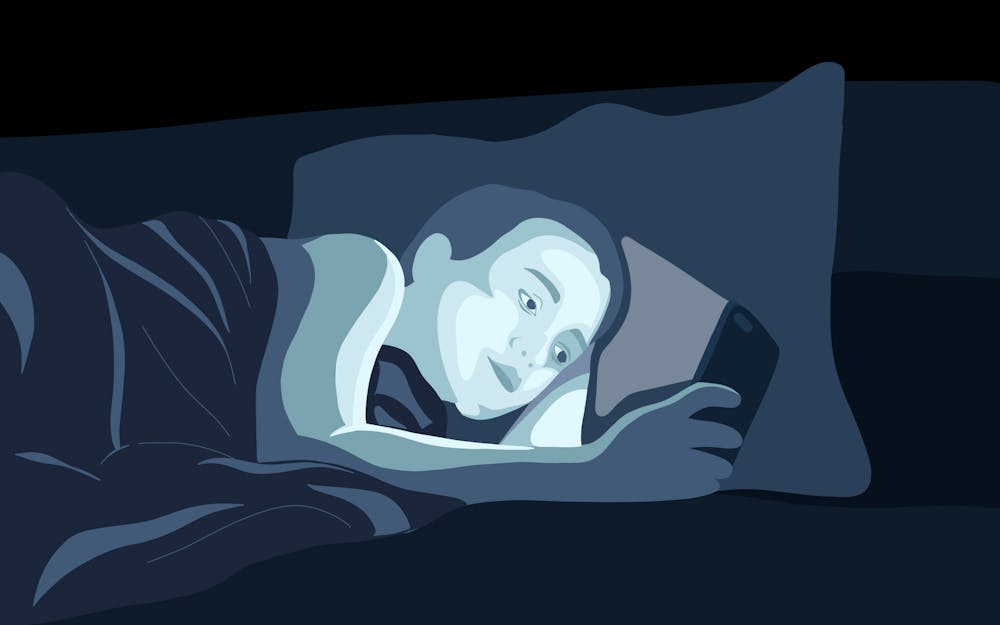How do I start a column about a topic as vast as our collective experience with the internet? It’s an important topic, but it’s also a daunting one: the internet, as a concept, is ubiquitous, an omnipresent facet of our lives that’s almost become something of an afterthought.
And, in some ways, that’s great — it’s a wonderful tool that’s allowed modern humans access to a wealth of knowledge that, in sum, would’ve been nearly impossible to cultivate in the past. But, as has been discussed ad nauseum, maybe there’s conversations to be had about our shared overreliance on a technology that didn’t widely exist until the early 1990s.
But, that’s not really a unique subject, is it? How will I persuade anybody this is a systemic, societal problem when, well — everybody kind of already knows that? It’s not like there’s really anything we can do about it because, as I said, the internet is omnipresent. Every part of our life, from our education and careers to our social lives and entertainment, is so ingrained in its existence that logging off isn’t always an option.
I’d be a hypocrite to preach about taking a break from social media or shutting off your phone because I haven’t done either of those things. I’m not on a high horse here: I’m writing this on a Google Doc and I’ve got “Mindhunter” playing on Netflix on the TV next to me and my phone, which I’ve been continuously and mindlessly checking, is on the charger right next to that.
[Related: OPINION: Staying sane in the wake of the world]
So, what interests me more is the broader implication of this dependence on Generation Z specifically. We are the first generation to be born in a time the internet has been both widely available and ever-present. Not a single member of our generation has ever known a time the internet hasn’t existed.
Throw a pandemic that forces everybody to shelter in their homes for months at a time into the mix, and it’s easy to see why Gen Z might be further drawn to an online environment.
A 2018 study from Cigna indicated that Gen Z is the “loneliest generation,” but that social media use isn’t necessarily a foretelling of loneliness. However, the study also concludes that those who engage in “frequent, meaningful in-person interactions” are less likely to report a strong feeling of loneliness. Further, a Pew Research Center poll found that roughly 70% of teenagers believe anxiety and depression is a major problem among their peers.
The Annie E. Casey Foundation, an organization that focuses on child well-being, hits the nail on the head: of course Gen Z is the most depressed generation. The world we live in is one of school shootings, crippling student debt, a failing economy and an ongoing global pandemic.
Simply put, our relationship with the internet is inextricably tied to the socio-political and economic climate around us. It’s also tied to the actual climate: Gen Z engages with more climate change content than other generations and 69% report feeling anxious about the future.
What’s more depressing than knowing the world you live in is massively screwed up in ways you can’t fix? We cannot singlehandedly mend the wealth gap or hold back climate change. But, what we can do is lie in bed on our phones and doom-scroll, reading about all these topics and joking about them.
[Related: COLUMN: On the clock: The plastic surgery plague]
I think the filmmaker Bo Burnham summed it up best on the press tour for his film “Eighth Grade,” which explores several of these topics specifically in relation to the modern teenage girl.
“Getting in bed at the end of the day, you have to choose between all of the information in the history of the world, or the back of your eyelids,” he said in an interview with People Magazine. “That’s a pretty extreme choice. They just kind of go between really high extremes, which I think just lends itself to anxiety.”
We’re often disparagingly told about the time before the internet by older adults who feel they need to preach to us about our alarming technology use. But we’re self-aware of these things. We can’t not be.
We know the internet has taken over our lives in unprecedented ways, but, in the end, we continue to use it anyway. Because, frankly, what else are we supposed to do?
Joey Sills (he/him) is a sophomore studying journalism and political science.




